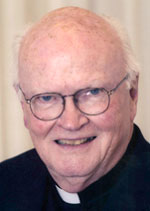Now that school is out, it’s fair to ask: “What’s in?”
That’s a question parents should be considering. They have to be concerned with how their youngsters are occupying themselves during the summer vacation. The vacationing students have to be concerned as well. Parents and their offspring should work together on summer plans; otherwise valuable time will be lost and so will opportunities for personal growth.
Sports, travel, summer jobs and summer camp, in some combination, are capable of making June, July and August speed by. Camp and travel will be out of reach for some, and jobs are often hard to find.
However, no youngster has more hours or days in a summer week than any other, and all have an equal opportunity to engage in some form of volunteer or community service. Boredom is not an option for those who have a pulse and even a modest measure of ambition.
[hotblock]
Any productive, growth-producing summer should begin with a reading list — at least five good, age-appropriate, mind-stretching books to be read by summer’s end. Librarians are always willing to assist parents in putting a good list together; the kids should have a say in making the selections.
The trick is first to make the list, then post it in the kitchen, check off what has been read, and schedule a dinner-table report opportunity for the young reader for each book read. Family conversations will ensue and passive television viewing will decline.
As a matter of fact, summer reading can ease the grip that television often has on the minds and time of the young.
Summer writing is not out of the question. Let the kids try their hand at short stories. There could be neighborhood competitions, if parents are resourceful enough to organize them.
Inexpensive daytrips can be planned for the out-of-school young by imaginative parents. There are museums, gardens, libraries, factories, city halls, fire houses, police stations, airports and lots of other interesting places to be visited.
Summer offers time for performance in plays or concerts, if adults provide organizational support as they so often do in organizing summer leagues for young athletes.
Large metropolitan areas offer the opportunity for foreign-language immersion experiences for the young, if only some interested adults are willing to get the kids — particularly Hispanic and Anglo — talking.
It can be fun and it need not be at all expensive. It is really just a question of letting a community become what it was intended to be: a collection of people communicating with one another. Summer provides the time it takes to get the conversations going.
You may have noticed that there is an opportunity in all of this for the church to get involved. Pastors cannot be expected to do it all, but resourceful pastors can ask their parishioners to step up to the challenge.
Much of what I’m suggesting here could happen on church property and that might have the indirect benefit of bringing the kids closer to all of the other good things the parish has to offer year-round.
***
Jesuit Father Byron is university professor of business and society at St. Joseph’s University, Philadelphia. Email: wbyron@sju.edu.




Share this story